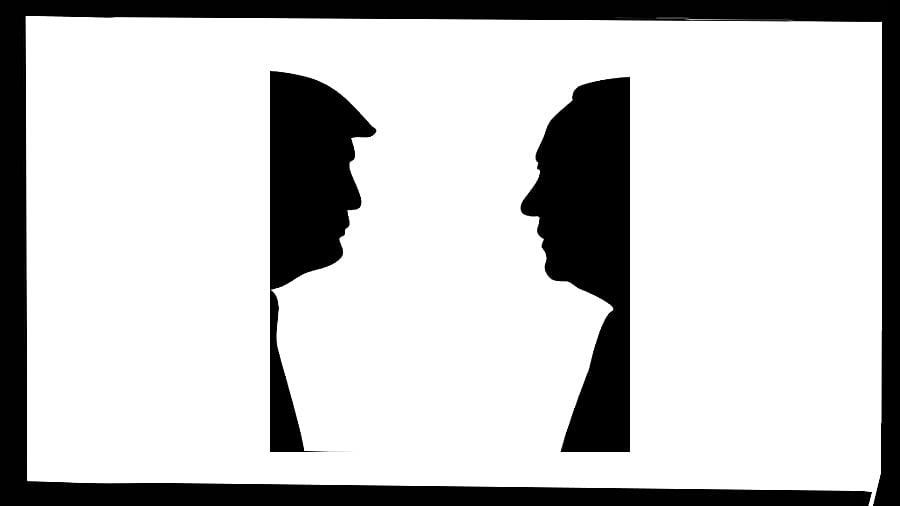
As Israel continues to intensify its ground offensive on Gaza, there are indications that its attack on the Hamas leadership in Doha on September 9 is heavily recoiling on the Benjamin Netanyahu government. Wes Streeting, the United Kingdom’s Health Secretary, has warned that the “Netanyahu government’s handling of the Gaza war is leading Israel to pariah status.”
This was on the eve of Israeli President Herzog’s visit to the UK to express solidarity with the British Jewish community, which, Herzog’s office alleged, “is under severe attack and facing a wave of antisemitism.” However, Streeting insisted that Herzog “needs to answer the allegations of war crimes, of ethnic cleansing, and of genocide that are being levelled at the government of Israel.”
+972 Magazine, an Israeli left-wing periodical, said in a 2014 survey that over 70% of Israelis were worried about international isolation. Israel, which is heavily reliant on foreign trade and investment, has always wished to align with Western democracies as it has less resilience, unlike Iran or Russia, to “cope economically, militarily, and psychologically with sanctions and global disapprobation”, as the magazine Foreign Policy said recently.
Significantly, on September 8, British Prime Minister Keir Starmer hosted Palestinian Authority President Mahmoud Abbas at 10 Downing Street. The PM is reported to have promised “to recognise a Palestinian State ahead of the UN General Assembly later this month unless Israel changes course”. Spain, Ireland, and Norway have already announced their recognition, while Belgium, Australia, Portugal, Canada, and Malta have stated plans to go with Britain and France in recognising Palestinian statehood, joining more than 140 other countries.
Los Angeles Times noted that American credibility in the Gulf states was the first casualty when Israel attacked the Hamas leadership in Doha, as these states had seen their security as assured, with “tens of billions of their petrodollars and agreements that allowed the US to dot the Middle East with some of its largest military facilities”. It was particularly incredulous that Israel, which depends mainly on America, could attack Qatar, which hosts the Al Udeid Air Base, the largest American military installation in the region.
It was also a personal insult to President Donald Trump, as he had signed a “historic” US-Qatar economic agreement valued at $1.2 trillion in May this year, besides accepting a luxury jet as an “unconditional donation”. As a result, the US joined other members at the United Nations Security Council (UNSC) in condemning the attack, an unprecedented action, as America always vetoes anti-Israel resolutions. During the UNSC meeting, Qatari Prime Minister Sheikh Mohammed bin Abdulrahman al-Thani alleged that the Israeli government was “led by blusterous extremists.”
Personally, Trump exhibited his exasperation by saying that the raid did not “advance Israel or America’s goals” as Qatar was hosting Hamas leaders since 2012 for “indirect negotiations” with Israel, as desired by America. Also, the Abraham Accords initiated by Trump in September 2020 towards normalisation of Israel-Arab states relations lay in tatters as the United Arab Emirates (UAE), one of the important signatories, slammed the “blatant and cowardly” attack.
Abu Dhabi also summoned the Israeli ambassador to convey that any aggression against a Gulf Cooperation Council (GCC) member-state was considered “an attack on the collective Gulf security framework”. The attack marked the first direct strike by Israel on one of the GCC member-states.
Politico reported on September 9 that Trump and his top aides had come to question whether Netanyahu, who authorised the strike, “was trying to sabotage the talks”. It quoted a White House insider: “Every time they’re making progress, it seems like he bombs someone, the person said. That’s why the President and his aides are so frustrated with Netanyahu.”
A US-endorsed negotiation
Israeli newspaper Haaretz reported on September 13 that Trump had dinner with the Qatari prime minister in New York, days after the Israeli attack. They were joined by US special envoy Steve Witkoff.
Netanyahu had alleged that Qatar was the chief financier of Hamas terrorists, besides hosting them. This was contested by independent observers who quoted an op-ed piece in The Wall Street Journal in 2023, by the Qatari ambassador to the US, Sheikh Meshal bin Hamad Al Thani, that Washington wanted Qatar “to establish indirect lines of communication with Hamas”.
Al Thani added: “The presence of the Hamas office shouldn’t be confused with endorsement but rather establishes an important channel for indirect communication”. The New York Times has confirmed that Netanyahu had secretly approved this contact through Doha.
In a video address on the 9/11 anniversary, Netanyahu invoked Israel’s right to attack the ‘terrorist’ base in Doha just as the US had invaded Afghanistan in 2001 for sending terrorists to attack America on 9/11. This argument has not impressed anybody as the US had first moved the UNSC, which passed Resolution No. 1368 that condemned the “horrifying terrorist attacks which took place on 11 Sept. 2001” and called on “all States to work together urgently to bring to justice the perpetrators, organisers and sponsors of these terrorist attacks”. The US had taken this as a UN authorisation and invaded Afghanistan, which had given shelter to Osama bin Laden.
As against this, Israel had continuously been attacking and killing UN personnel extending humanitarian assistance to the Gaza civilians, including women and children. Democrat senators Chris Van Hollen and Jeff Merkley confirmed this during their visit that Israel was doing “ethnic cleansing” of the local population and starving them of food, using hunger as a weapon.
(The writer is a former special secretary, Cabinet Secretariat; Syndicate: The Billion Press)
Disclaimer: The views expressed above are the author's own. They do not necessarily reflect the views of DH.